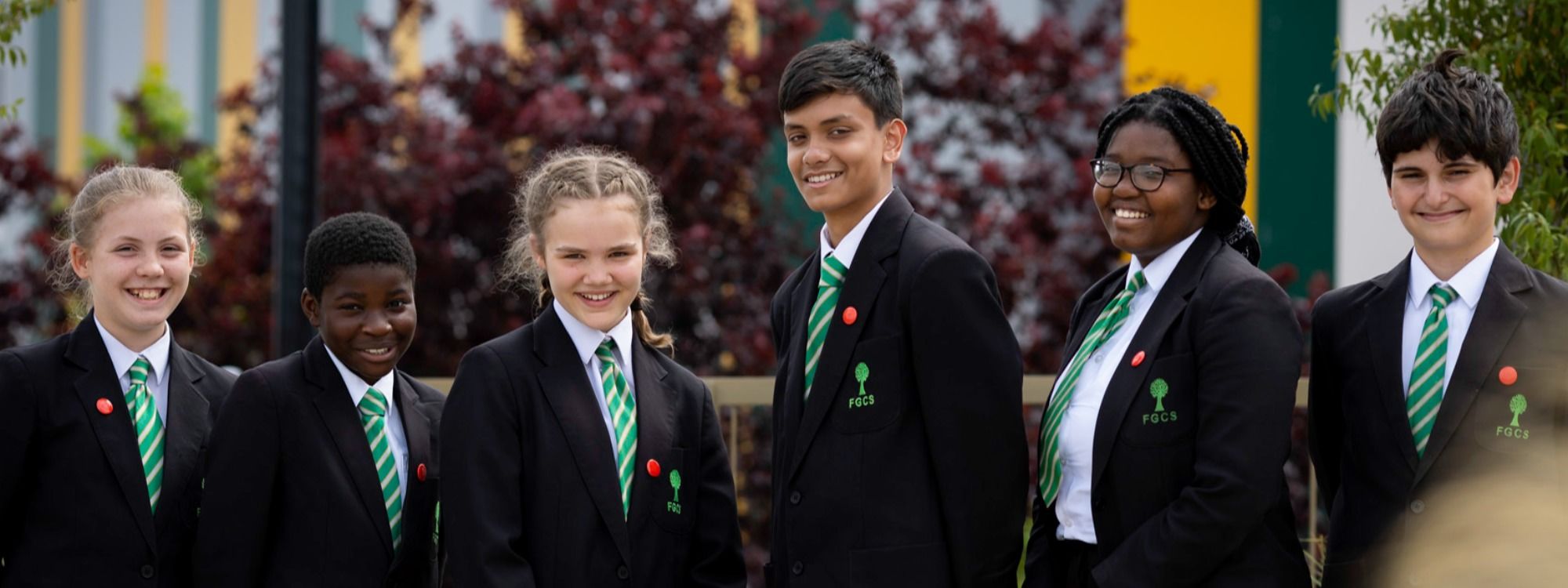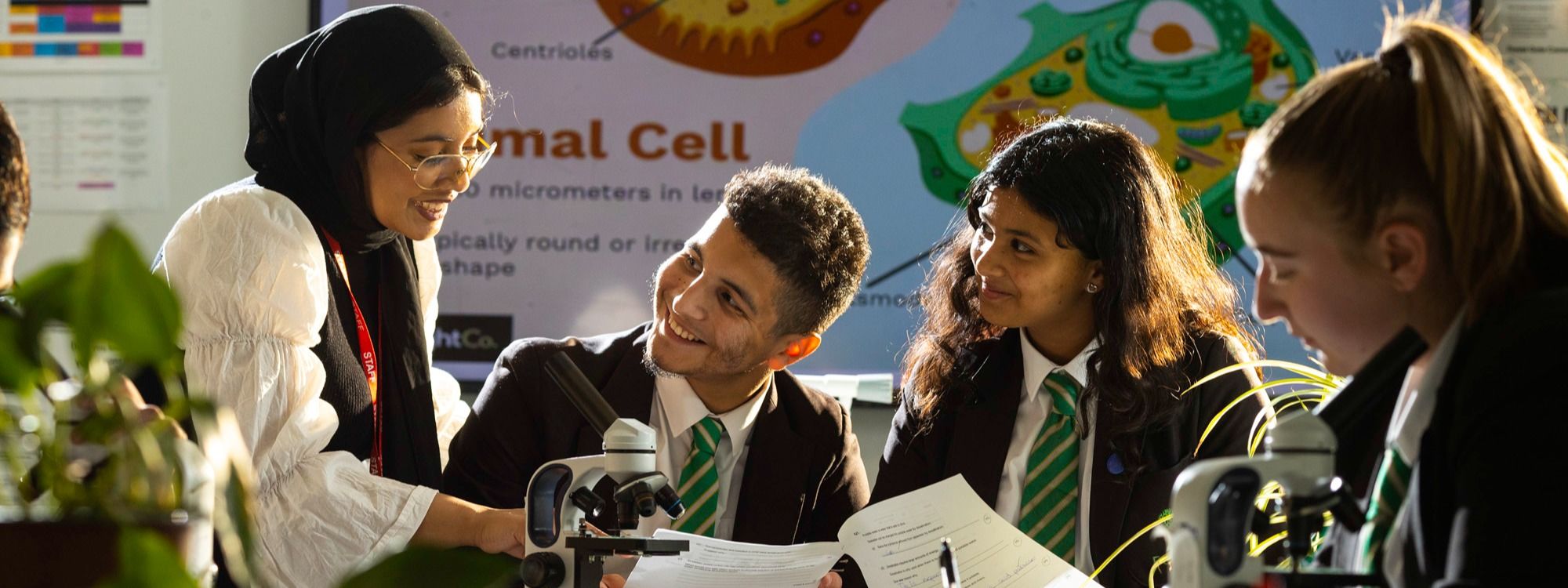- Home
- School
- Departments
- Media Studies
Media Studies
BackMedia Studies at FGCSWhat topics will my child study in year 7 and 8?
Media Studies is not taught exclusively as a subject at Key Stage 3. It is however incorporated within the English National Curriculum.
What topics will my child study in year 9, 10 and 11?
At KS4, students follow GCSE (9 - 1) OCR GCSE Media Studies. Details of this specification can be found here.
The course is split into two papers and an Non-Examined Assessment (coursework) component:
Students will study a diverse range of Media texts focusing on:
- Textual analysis techniques (how to ‘de-construct’ print/moving image texts and their meanings)
- Media language
- Audiences and institutions
- Media representation
- Applying theoretical perspectives
- The Adobe suite
The course in year 9 and 10 takes a case study approach where each key concept is investigated in research and analysis of texts followed by practical productions to implement the pupils’ understanding.
The year 9 case studies are:
- Music: Video, Magazine and Radio
- Marketing and Print Advertisements
- News Online and Print - 1960 Vs 2020s
- TV - Serial Crime Drama 1960s Vs 2020s
The year 10 case studies are:
- The non-exam assessment case study - based on an annually changing theme (worth 30% of GCSE). This is issued by OCR.
- Film Advertising and Marketing
- TV - Serial Crime Drama 1960s Vs 2020s
In Year 11 students will focus on completing their NEA (Non Exam Assessment): worth 30% of the qualification, whilst also engaging in revision sessions and exam skills in preparation for (May) paper 1 and paper 2 Written Examination: worth 70% of the qualification.
Do you have a reading list for this subject?
All students will be given a copy of this book in year 11 as a loan.
How can I help my child to excel in this subject?
In addition to discussing learning with your child and monitoring their homework, ensuring your child is engaging with issues around the Media and its role in our lives, help them to engage with the key concepts. Perhaps reading/ watching the news regularly. When watching television, you could ask them to complete case studies on how groups are represented or explain the methods being used using Media language. Students are encouraged to read articles in newspapers such as The Observer, The Guardian and The Independent as well as online.
Are there any online resources?
- http://www.bbc.co.uk/education/subjects/ztnygk7
- https://www.massolit.io/
All students will have a school login to Massolit and can find revision videos on there.
Do you offer any interventions or clubs my child can attend?
- The student newspaper club will provide insight into the creation of News.
- Year 11 lunchtime intervention is also offered.
- Year 10 intervention is offered from Term 2 onwards.
Are there any important dates for me to be aware of in your subject?
Information will be provided of dates for interim assessments, internal and external examinations.
- NEA Release Date for year 10 is March 1st 2025.
- Deadline for NEA for year 11 is March 2025.
- NEA due date to be marked and moderated - April 28th 2025.
How will my child be assessed at the end of the course?
Paper 1: TV and Promoting Media- 35% of total GCSE (9-1) The examination is 1 hour 45 minutes long.
Paper 2: Music and News- 35% of total GCSE (9-1) The examination is 1 hour 15 minutes long. Coursework/Non-Examined Assessment : Media Portfolios – Creating Media 30% of marks. They will have to independently research, plan and produce one individual media production in response to an OCR set brief from any one of the three following forms:
- audio/visual media
- print media
- online media


